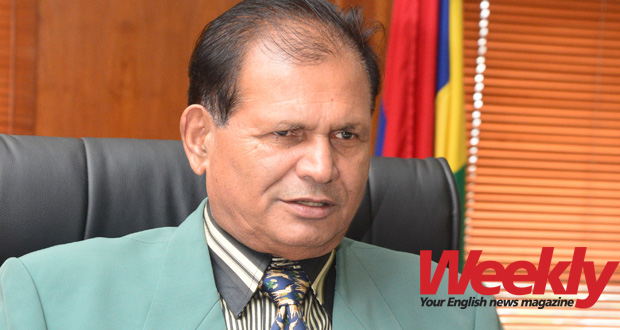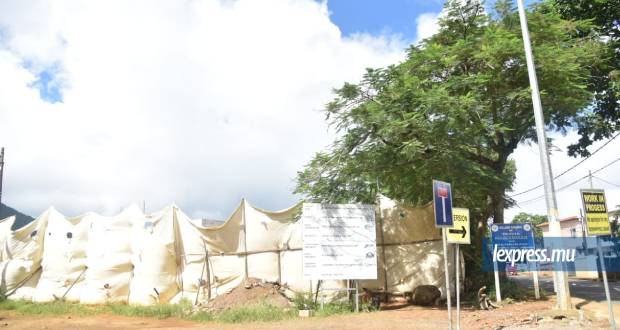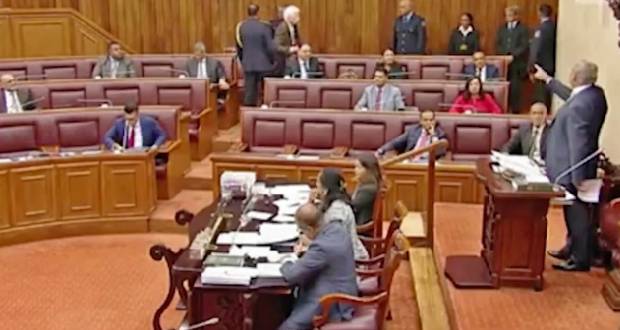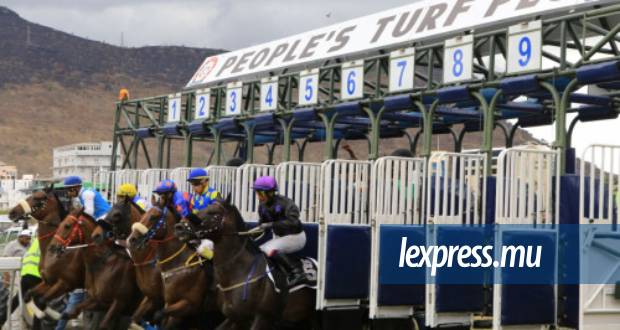Publicité
The Dayal bomb: What is at stake for the government?
Par
Partager cet article
The Dayal bomb: What is at stake for the government?

(This article was published in Weekly magazine on the 24 March 2016) The minister of environment is accused of bribery and steps down – just a few days before parliament resumes. The Dayal bomb dropped just after the allegations of malpractices against the new Minister of Foreign Affairs, and the shuffling around of ministers. Will parliament deliver in the middle of all this, and what happens if it doesn’t?
“I need to spend (money) on my constituency… you need to give your support”. Those word, heard in an amateur recording handed over to the Independent Commission Against Corruption (ICAC) on Tuesday by a businessman who says that the voice belongs to Environment Minister Raj Dayal, is the latest blow to a government that, according to political observers, was bleeding already. The prime minister asked Dayal to step down and the latter called to a press conference yesterday in which he refused to answer questions. “It’s clear that there is a conspiracy to prevent me from working. There has been a character assassination against me to destabilise the government, especially since parliament is resuming, there are budget meetings and May Day preparations,” he said. Dayal did not give any details about the alleged conspiracy – and did not did not explicitly say that the person speaking on the recording was not him. When he was asked the question directly, he merely stated that the inquiry will run its course.
While it will be up to the ICAC to establish whether the recording is authentic or not, the fact that he was asked to step down suggests that the case could be serious, according to Ram Seegobin from Lalit. “Dayal talked about a plot against the government but didn’t expand on whether the recording is genuine or not,” he began. “He must have been advised not to comment but if it had been a complete set-up, a false recording, wouldn’t he have denied it and informed the prime minister? Seegobin asked rhetorically. “Would the prime minister have asked him to step down in that case?”

The Dayal bomb came untimely for the government, which was already dealing with the allegations of malpractices against Vishnu Lutchmeenaraidoo, the (now former) minister of finance who was moved to the Foreign Ministry last week. “The government has become even more fragile,” said Dev Virahsawmy, who has just joined the opposition Labour Party. “There is a profound instability within the government, and things are happening fast,” said Seegobin. “The government is still dealing with the Lutchmeenaraidoo hot potato and Anil Gayan (the minister of health) who has to report to the ICAC… The list is getting long,” he added. When parliament resumes in a few days’ time, government risks being on the back foot. “The political opposition is going to go out hard,” according to Seegobin.
The alleged bribe bomb dropped shortly after Prime Minister Anerood Jugnauth had declared that all was well in government land and that the only reason ministers were shuffled around last week was because Lutchmeenaraidoo was overworked in the Finance Ministry. But the walls seemed to close in on the latter. It was not just the million-euro loan granted to him under unusually favourable conditions by the State Bank of Mauritius anymore. His role and his sister’s in the Smart City project in Pailles is being questioned, as are the government contracts allocated to a company belonging to his son, allegedly without tenders. Lutchmeenaraidoo announced on his Facebook page – seemingly his preferred method of communication these days – that he was going on sick leave again as from this week, a few days after having been appointed minister of foreign affairs, and that his answer to the allegations for now is silence.
A few days earlier, he had chosen social media as a forum to shout that “enough is enough”, stating that people were taking advantage of his illness to “destabilise him politically” – the same term used by his colleague Dayal a few days later. The reports of an alleged conflict between Lutchmeenaraidoo and his colleague Roshi Bhadain, minister of financial services, that supposedly is at the heart of the controversy was not confirmed or denied by either of them, take or leave a few cryptic insinuations. The question on everyone’s lips now is: Where will the minister of finance turned minister of foreign affairs be when parliament resumes, after a long period of inactivity, next Tuesday?
Logically, he has little choice but to resign, is the opinion of Virahsawmy. “In the name of political morality, Dayal had to resign and so should Lutchmeenaraidoo, both as a minister and an MP, and let voters decide where they want to go from there,” he said. According to Seegobin, Lutchmeenaraidoo has pushed himself into a corner. “He presents himself as a wounded person, even threatening to take legal action, when he is actually in a very weak position,” he added. “It will be difficult for him to explain how a minister of finance can decide to take a big loan from a bank that is vaguely placed under his own institution, to speculate on gold.” Having said that, however, Seegobin and many others firmly suspect that certain people within the government who clash with Lutchmeenaraidoo on policy issues are “taking advantage” of the situation. The loan document, some suspect, could have been deliberately leaked to the press in a calculated effort to oust him. “Inside government, there is a faction that is against Lutchmeenaraidoo but he does not seem to have anybody with him, not even the prime minister,” says Seegobin. The Bhadain/Lutchmeenaraidoo conflict and the Dayal bomb – real or not – have weakened the government, according to Virahsawmy. “Parliament will resume at a time when the prime minister seems to have lost control over his ministers,” he said. “There is going to be the usual talk and laws will be passed on as a matter of routine but the lack of political leadership will stand in the way,” was his opinion. What Virahsawmy referred to as a lack of leadership has resulted, according to him, in a situation where each minister seems to be running his own race.
Risks
This alleged every-man-forhimself attitude, and the potentially energy-consuming political game risk taking the focus off the real issues. “They are not dealing with the fundamental problems that affect the country, and it’s going to cost them,” Virahsawmy claimed. He mentioned job losses and the effects of climate change that could have a severe impact on the tourism sector as examples. But what the population particularly expects from the government at this point is job creation, said Seegobin. “The problem is that a large amount of money is being poured into building Heritage City, while the government is not investing in productive sectors that would lead to job creation, like agriculture, fisheries and meat production,” he argued.
It will be an updated, reshuffled cabinet that enters the national assembly along with a political opposition that might look different too, courtesy of the government junior ally the Muvman Liberater’s war with its own MP, Sangeet Fowdar. Fowdar might cross the floor and join the Mouvement Patriotique. Regardless of what the opposition will look like, the reshuffle on the government side might come to have unintended consequences. The official explanation for moving the finance minister with the motivation that he was “overworked” could backfire in the long run, since the strategy suggests, inexplicitly, that he will not be overworked in his new place of work should he stay put instead of resigning.
“The Ministry of Foreign Affairs is supposed to be a heavy ministry but in Mauritius, it has become an empty one,” claimed Seegobin. “With Soodhun (minister of housing and lands) constantly shuttling between Saudi Arabia and Dubai, the Prime Minister’s Office taking over the Chagos dossier and Xavier-Luc Duval (tourism minister) handling Africa, the foreign ministry is now a place where you place people that you seem to want to get rid of,” he argued.
Parliament will resume at a time when the “heroic days” of the Alliance Lepep are gone, according to Virahsawmy. “People were excited initially, and there was a general impression that the country needed a good sweep after Ramgoolam but they are realising now that it’s not going to happen,” he argued. The alleged strategy for pushing Lutchmeenaraidoo away – if that is what it is – could come to have even worse consequences and result in a crisis of trust, he felt. Voters could ask themselves whether other ministers will be accused of having their own, possibly even more rotten, skeletons in the cupboard, and whether such allegations will turn out to be true. There is, according to Virahsawmy, a genuine fear out there that this whole saga might only be the tip of the iceberg. “If what we see now seems to stink,” he began, “how bad are the things that remain hidden going to smell?”
The recording
The bomb dropped on Tuesday, exactly one week prior to the resumption of parliament after a long period of inactivity. According to a member of the business community, Environment Minister Raj Dayal asked him for a bribe, hinting that he would get an Environmental Impact Assessment in exchange for the trouble. The conversation was recorded and the Independent Commission Against Corruption is now apparently investigating if the person speaking is indeed former Minister Dayal. In the recording, the person is heard saying that he needed money to organise the Holi celebrations. He sets up a meeting with the businessman, providing an address with a street named Dayal Lane (“Is that your yours”? the latter asks, referring to the street name. Reply: “It’s all my family’s”).
Publicité
Les plus récents






